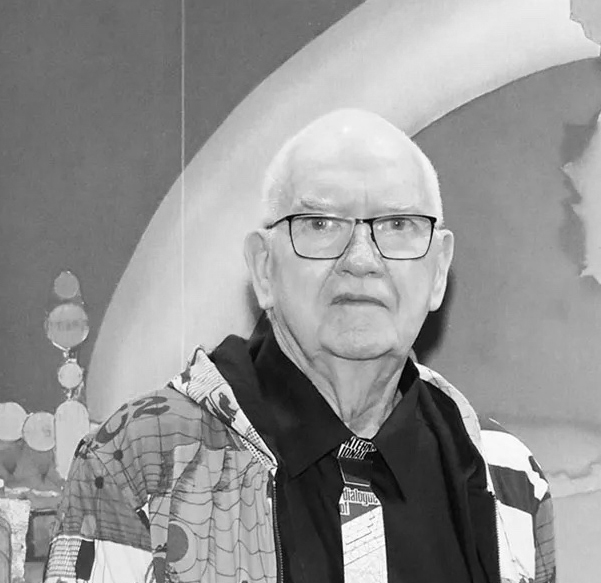
British architect Dennis Crompton has died at the age of eighty-nine. Born in Blackpool in 1935, he was a key member of experimental architectural group Archigram, founded in London in 1961 with fellow architects Peter Cook, Warren Chalk, Ron Herron, David Greene and Michael Webb.
Initially started as a magazine, Archigram evolved into an architecture collective known for their forward-thinking experiments with emerging technologies, often drawing inspiration from popular culture. One of their best-known works is the ‘Plug-In City’ (1963-66), a concept for a modular metropolis of prefabricated capsule homes, initiated by Crompton and dubbed ‘things that go bang in the night’.
The group famously never completed a building. ‘There is a practical side to what Archigram members do,’ Crompton argued in an interview with Dezeen in 2020. ‘It’s not just highfalutin, funny, pretty colourful drawings and so on.’
Crompton taught at the Architectural Association School from 1965 for more than three decades, and later at the Bartlett School of Architecture.
Following the disbanding of Archigram in 1975, he focused on preserving the legacy and archives of the collective, which led to a major touring exhibition in 1994 and comprehensive monograph of the group’s work in 2018. In 2019, M+ Museum in Hong Kong purchased the entire archive.
Announcing the news of Crompton’s death, fellow Archigram cofounder and friend Cook paid tribute to him as the ‘Archigram keeper of the Flame’.